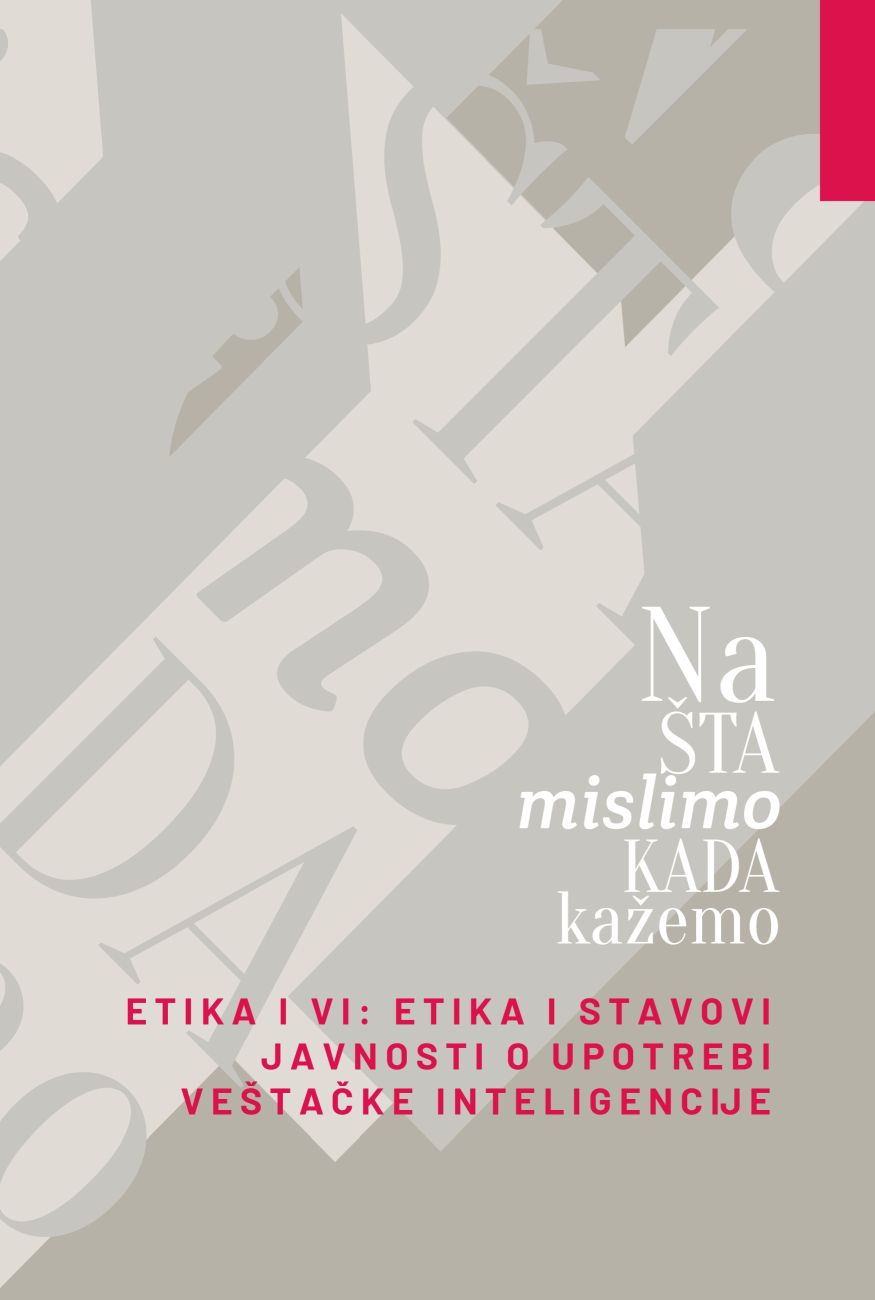
Na šta mislimo kada kažemo… Etika i VI: etika i stavovi javnosti o upotrebi veštačke inteligencije
European integrations: Chapter 23, Chapter 24 SDGs: SDG 09, SDG 10, SDG 16 Author(s): Marina Budić Thematic Area: Active Citizenship and Democratic Institutions, Digital Society, Social Criticism Published: 2022 ISBN: 978-86-82324-05-8 Pages: 13 Language: Serbian Publisher: Institute for Philosophy and Social Theory, University of Belgrade Tags: book | More DetailsThis research investigates public attitudes and ethical concerns regarding the use of artificial intelligence (AI) in Serbia, as part of the broader project “Ethics and AI: Public Attitudes on AI Usage.” It evaluates the impact of AI on society, considering both its positive potential and inherent risks, particularly concerning privacy, democratic processes, and the potential for societal harm. The study highlights the importance of public education on AI technologies and their ethical implications, with a focus on developing policies that balance technological innovation with the protection of human rights and democratic principles.
One of the key findings of this research is the public’s divided opinion on AI, where half of the respondents express positive views, while the other half are concerned about its potential dangers, such as job displacement and discrimination in areas like gender, race, and socioeconomic status. Notably, individuals with higher levels of education, particularly those employed in IT sectors, tend to exhibit more favorable views on AI. The study also underscores the need for increased transparency and trust in both state and private institutions, ensuring AI is used in ways that serve the public’s best interests.
The research further identifies crucial areas for policy intervention, including data protection, the adaptation of the educational system to AI advancements, and addressing the ethical challenges that arise from AI deployment. The Serbian government’s current framework for AI development, including the national strategy and its alignment with the EU’s GDPR, is examined, with recommendations for strengthening these regulations to foster responsible AI innovation. By promoting a regulatory environment that safeguards privacy while encouraging AI development, this research calls for an inclusive and ethical approach to AI that prioritizes societal well-being.
The publication “”Etika i VI: Etika i stavovi javnosti o upotrebi veštačke inteligencije”” is relevant to the SDGs and EU negotiation chapters by addressing key ethical concerns around artificial intelligence. It supports SDG 9 (Industry, Innovation, and Infrastructure) by promoting responsible AI innovation, SDG 10 (Reduced Inequality) by advocating for equitable AI development, and SDG 16 (Peace, Justice, and Strong Institutions) by emphasizing transparency and human rights protection in AI use. It also aligns with EU Chapter 25 (Science and Research) through its focus on ethical AI research, Chapter 23 (Judiciary and Fundamental Rights) by addressing privacy and discrimination, and Chapter 24 (Justice, Freedom, and Security) by discussing the responsible use of AI in public security and legal frameworks, contributing to Serbia’s alignment with EU norms and sustainable development goals.
Back
